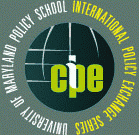Cash Transfers and Guaranteed Minimum Income Programs:
Research, Evaluation, and Policy
Prague, Czech Republic
September 9-10, 2024

-
“The impact of the Prime Minister Kisan Samman Nidhi (PMK) on Household Participation in the Mahatma Gandhi National Rural Employment Guarantee Scheme (MGNREGS) in India”
Kasim Saiyyad, Cornell University
The impact of the Prime Minister Kisan Samman Nidhi (PMK) on Household Participation in the Mahatma Gandhi National Rural Employment Guarantee Scheme (MGNREGS) in India
This paper examines the impact of the Prime Minister Kisan Samman Nidhi (PMK) on household participation in the Mahatma Gandhi National Rural Employment Guarantee Scheme (MGNREGS) in India. PMK is an unconditional cash transfer program that provides annual income support of INR 6,000 to farmers in three equal installments, without any work requirements. In contrast, MGNREGS is the world's largest employment guarantee program, offering up to 100 days of unskilled manual labor to rural households. Using household panel data from Maharashtra and a staggered difference-in-differences approach, the study compares MGNREGS participation between PMK beneficiary and non-beneficiary households before and after PMK implementation. The findings indicate that PMK significantly reduces MGNREGS participation, with the effect increasing with exposure duration. On average, beneficiary households experienced a reduction of 5-7 MGNREGS workdays compared to non-beneficiary households, with the largest decline occurring in the enrollment year. The weighted average across treatment groups shows a significant 6-day reduction in MGNREGS workdays. The event study analysis also suggests that PMK's unconditional nature generates an income effect that reduces distress employment under MGNREGS. This implies that the cash transfers provided by PMK can substitute for the employment guarantee offered by MGNREGS, potentially altering the dynamics of household labor market participation. The study's findings have significant implications for designing and targeting anti-poverty programs in India. They highlight the potential substitutability of cash transfers and employment guarantee schemes, which can inform policy decisions on the most effective strategies for reducing poverty and improving household well-being.

